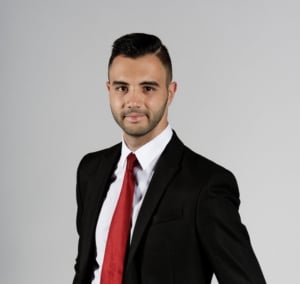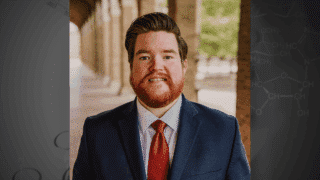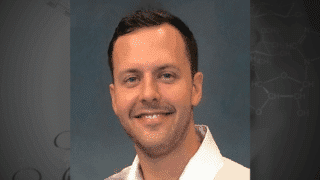 This year, the PCC partnered with the American Physiological Society (APS) to recognize and support two early-career researchers through the PCC-sponsored Anti-doping Predoctoral Awards! The awards are presented to one or more predoctoral graduate students for their exceptional research in environmental, exercise, thermal, or applied physiology. To be considered for an award, students must be conducting research relevant to ergogenics, the detection of performance-enhancing drugs and procedures, and/or the impact of training and environmental stresses on hematological profiles. Francesco Loria is a Ph.D. student in the Swiss Laboratory for Doping Analysis and the University of Geneva. Through his research, he is investigating new biomarkers for detecting blood doping and is developing new analytical methods for anti-doping. You can learn more about Francesco and his research in this interview.
This year, the PCC partnered with the American Physiological Society (APS) to recognize and support two early-career researchers through the PCC-sponsored Anti-doping Predoctoral Awards! The awards are presented to one or more predoctoral graduate students for their exceptional research in environmental, exercise, thermal, or applied physiology. To be considered for an award, students must be conducting research relevant to ergogenics, the detection of performance-enhancing drugs and procedures, and/or the impact of training and environmental stresses on hematological profiles. Francesco Loria is a Ph.D. student in the Swiss Laboratory for Doping Analysis and the University of Geneva. Through his research, he is investigating new biomarkers for detecting blood doping and is developing new analytical methods for anti-doping. You can learn more about Francesco and his research in this interview.
Background
Tell us about your educational background.
I have completed all my education in Switzerland. During High School, I was particularly interested in chemistry and biology. Then I went to university where I earned a Bachelor of Science in Biology (undergraduate) and then a Master of Science in Medical Biology (graduate) both at University of Lausanne. Now, I am doing my Ph.D. in biomedical science at the Swiss Laboratory for Doping Analysis in Lausanne and University of Geneva.
What educational/professional opportunities helped you reach this point in your career?
During my master’s program, I attended a lecture by Dr. Nicolas Leuenberger about anti-doping. This helped me realize that it was possible to complete my Master’s thesis/internship in their laboratory. After this master’s project was completed, I am grateful to the Swiss Laboratory for Doping Analysis for letting me stay there to pursue my PhD thesis and continue anti-doping research.
Why did you choose to go into your field of research?
I choose the anti-doping field because I have a huge passion for sport, especially soccer. And this field gives me the opportunity to use my knowledge and passion for biology to help to keep sport (my other passion) clean.
Research
What do you find most interesting or exciting about your research area?
The fact that there is always a need to continue finding new methods to fight against new methods of doping. It is a race between laboratories and the athletes who search for new ways to dope and to hide their doping.
You recently presented a poster at the 2023 American Physiology Summit. Can you describe the findings of your work so far?
I presented my results about reticulocyte-related RNA (from the genes ALAS2 and CA1) used as biomarkers to detect blood doping. At APS 2023, I showed that these biomarkers could potentially increase the sensitivity (in cases of recombinant human erythropoietin (rhEPO) micro doses) and specificity (in cases of hypoxic conditions) of the hematological module of the Athlete Biological Passport.
What are the impacts or potential impacts of your research?
The main potential impact of my research will be to improve the hematological module of the Athlete Biological Passport and make this tools more specific and sensitive to fight against blood doping.
Goals and PCC Benefits
How did you learn about the American Physiological Society?
Colleagues told me about the Experimental Biology congress, and there I learned about the American Physiological Society and about the new American Physiology Summit.
How did you learn about the Environmental & Exercise Physiology (EEP) Section Partnership for Clean Competition Anti-Doping Research Award?
A colleague told me about this Research Award as well.
How will the Environmental & Exercise Physiology Section Partnership for Clean Competition Anti-Doping Research Award contribute to your success?
First of all, I would like to thank the PCC for this award. It gave me the opportunity to attend APS 2023 in Long Beach. It was a wonderful experience. I met interesting people there and my networking at the conference will help me in my career. Moreover, the fact that I won this award increased my motivation to continue my research.
What parallels do you see between Exercise Physiology and the work being done in the Anti-Doping field?
Both fields are linked by sport and help different ways to ensure athletes’ integrity. And in the future, if possible, I would like to work with APS to bring more anti-doping content and researchers to their congress. This will provide the opportunity to build more links between these two fields.
What have you gained from your research experience?
My experience helped me to be more open with people by engaging in networking, and I also learned a lot about conducting high-quality, rigorous research. For this I would like to thank my colleagues from the laboratory and particularly Dr. Nicolas Leuenberger, who has generously shared his knowledge with me. In the future, I hope to make useful contributions to the anti-doping field.
What are your long-term research or career goals?
My long-term goals are to improve doping detection methods, to create more links between anti-doping methods and clinical methods, and also to strengthen the links between the anti-doping and exercise physiology fields.



